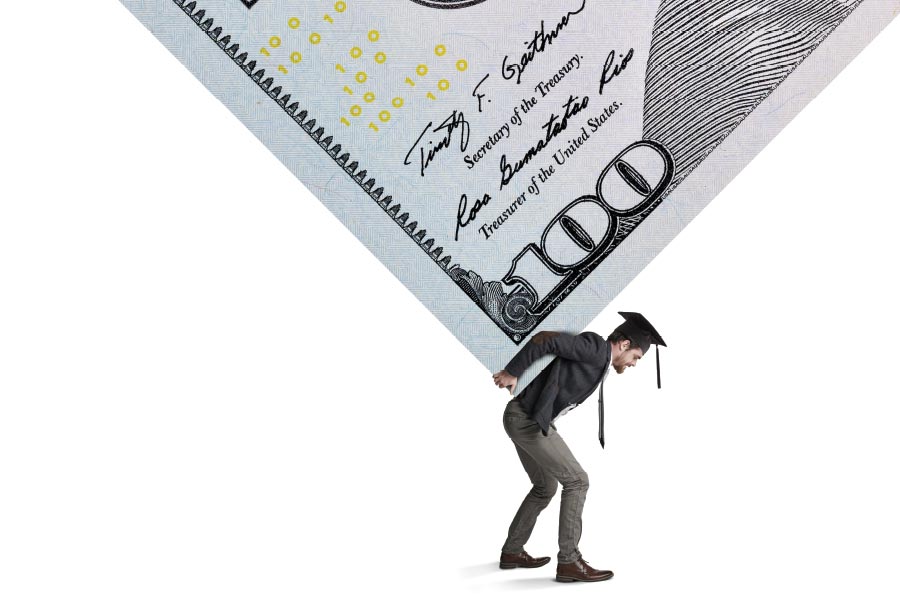

A Supreme Court ruling Friday adds urgency to budgeting and financial planning decisions for clients who owe money on student loans, investment advisors said after the court released its decision.
The high court struck down a Biden administration plan that would have provided up to $20,000 in loan forgiveness for borrowers who make less than $125,000. The court held, 6-3, that the Education Department exceeded its authority with the program.
The decision coincides with the lifting in October of a freeze on student loan payments that has largely been in place since the advent of the coronavirus in March 2020. The confluence of events poses a financial challenge for borrowers and the advisors who are helping them.
“People are going to have to figure out where in their budget these payments are going to come from,” said Ryan Frailich, founder of Deliberate Finances. “It’s going to be very difficult for some people and very easy for others.”
Some clients may have seen an increase in their compensation over the last few years or taken advantage of the loan payment delay to retire other debts and meet other financial obligations. But others may have lost their jobs, experienced a decrease in income or taken on new caregiving responsibilities.
“It’s a one-two punch,” Ethan Miller, owner of Planning for Progress, said of the resumption of loan payments later this year and the Supreme Court decision Friday. “It’s a load of bricks on millions of borrowers who were counting on this relief. It’s going to be really, really tough for a lot of people.”
Brittany Brinckerhoff, a financial advisor at Hilltop Wealth Advisors, had been expecting the Supreme Court to kill the Biden administration’s loan-relief program. As she and her clients wait to hear about the potential for more relief, they’re starting to make repayment plans.
“I’m recommending that my clients refresh their memory on what loans they have, where they are, and what the monthly payment might be once everything resumes,” Brinckerhoff said. “It’s also a good time for them to review their budgets and their cash reserves, to make sure that they’re prepared to start making monthly payments again. Some of my clients have been holding onto extra cash, just waiting for interest to start accruing again, before they pay their loans off in full.”
Judy Brown, a financial advisor at SC&H Group, said the court's decision should be a catalyst for reviewing tax and other financial planning strategies, especially for clients who had been repaying loans based on their income.
"We're in a very different world right now than when this forbearance started," Brown said. "To just wait for your student loan bill is not wise. You want to get ahead of it ... so you can make educated decisions."
One of the best ways advisors can help their clients resume making loan payments is assisting them in figuring out which repayment method is best. That decision can pose a challenge for advisors.
“There’s a lot of complexity based on the best payment plan,” Miller said. “This isn’t something to fly by the seat of your pants on.”
Advisors who don’t have a firm grasp of student loan programs should turn to other advisors or consultants who specialize in it, Frailich said.
“If you don’t understand student loans, you should not be advising at all on federal student loans,” said Frailich, the majority of whose clients have student loans outstanding. “You should outsource it.”
The decisions surrounding the best way to pay off a student loan also opens financial planning avenues, Brinckerhoff said. For instance, reducing the debt has to be done in conjunction with saving for retirement or a child’s education.
“There may be all kinds of things advisors are trying to balance depending on the client’s situation,” she said. “That gives us a big opportunity to help.”
The Supreme Court's decision solves the potential unfairness of providing loan relief for some people but not to others. It ensures everyone has "skin in the game" on college costs, said Kerrie Debbs, a partner at Main Street Financial Solutions.
"This ruling could be a foundation of better financial decision-making for one of the most expensive purchases in a person's life," Debbs said.
Aaron Schindler, co-founder of Care Concierge, said across-the-board loan relief is a "moral hazard."
"The government should arrange for a renegotiation of college debt, perhaps lowering the interest rate to 3% from 8%," Schindler wrote in an email. "There are no checks and balances holding colleges accountable, while high schools and parents need to do a better job teaching basic financial literacy.”

Looking to refine your strategy for investing in stocks in the US market? Discover expert insights, key trends, and risk management techniques to maximize your returns

Driven by robust transaction activity amid market turbulence and increased focus on billion-dollar plus targets, Echelon Partners expects another all-time high in 2025.

The looming threat of federal funding cuts to state and local governments has lawmakers weighing a levy that was phased out in 1981.

The fintech firms' new tools and integrations address pain points in overseeing investment lineups, account monitoring, and more.

Canadian stocks are on a roll in 2025 as the country prepares to name a new Prime Minister.
RIAs face rising regulatory pressure in 2025. Forward-looking firms are responding with embedded technology, not more paperwork.
As inheritances are set to reshape client portfolios and next-gen heirs demand digital-first experiences, firms are retooling their wealth tech stacks and succession models in real time.
